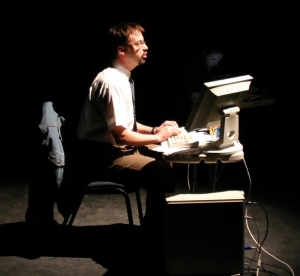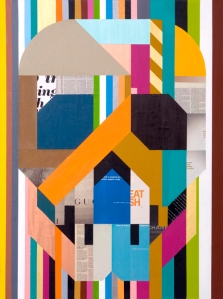The confessions of a burnt-out music writer cites over-specialization, in life and in the profession as a major weakness for the author, what was once a pleasure became a tool to isolate one’s self, and the general freakiness of staring down a less-than rosy future gave him weak knees. While all kinds of writers hail the coming of the post-human, kids these days are still trying to be human. When some people are trying to explore their world through education, schools are telling them they have to specialize and focus, pick a major that will get them a job and help them get out of crushing debt. Kyung Hee Kim, a creativity researcher at William and Mary uses standardized tests to measure creativity in thinking, which seems dubious, argues that in an era of over-testing, it gets suppressed. In the midst of all this:
“The compelling, unnerving issue is that the student has nothing to say,” said Howard of the piece that drew so heavily on WebMD. “How could she, since she’s writing a research document from reference materials?” -Skimming the Surface, Dan Barrett
That was from an InsideHigherEd article on how students cite these days. The paper in question relied on the same WebMD article for 9 of 17 citations. Some other telling quotes:
That so few citations were classified as summaries — 164 out of the 1,832 — also indicates that many students are alighting on several different sources without spending much time reading them, then cobbling them together into what Howard called “an incomprehensible pastiche.”
“We think we have students working for efficiency and doing efficient writing.”
An unprovable thesis: the call to teach students to find better sources amongst the piles of handy information both inside and outside of the library is a direct result of the decline in the editorial role of the librarian. Information wants to be free and we keep piling it on. So rather than spend a bunch of time doing a lot of boring work and reading, why not blaze through it and get on to things that actually interest you? Enter the lament of the music writer:
This is an illustrative tale. The forces of the educated marshaled their strength behind the idea that more information is good. As a result, creative students who would rather do something else besides what we think they ought to be doing with themselves use the cut-and-paste culture they have been armed with to meet those demands “efficiently” only to be called “uncreative.” We of earlier, more “creative, deeper thinking generations” get older and judge them for bending and breaking the rules of the games we impose, growing bitter at lost opportunities and their general ability to have a good time despite the things with which we task them. Not every student will find her voice in the system given. In this model of education, voices are given to the experts of the system who judge.
In art, montage and collage are time-tested techniques that can challenge us in ways other techniques can’t (it’s not an end-all-be-all). The power of sampling and turntablism in hip-hop is just one example of using tools outside of their original purpose to say something new. It’s deadly efficient, too:it makes it easier to use other’s work as a basis for your own when the materials to create are out of reach or unusable. It also allows you to capture the essence of a thing. You can get the idea from summarizing another wirter, but you’re not honestly capturing their voice.So when Howard and Jamieson lament that students are using more direct quotes than they are summarizing, it’s worth wondering if they miss this point.
In the study that Barrett writes about, it’s worth noting that these are 1st-year students, not yet inculcated with”proper” study habits. So they’re doing the best they can. I’ve working in public libraries on-and-off for a while. Some of the collections can support high-school research, others cannot. Public and School libraries are under constant budget scrutiny when board members and taxpayers ask “isn’t everything on the internet?” And we as librarians keep piling it on, too. The rules of the game given to students have changed, and they are responding creatively to those pressures. It’s not a lack of creativity, it’s a way of thinking we don’t understand.


